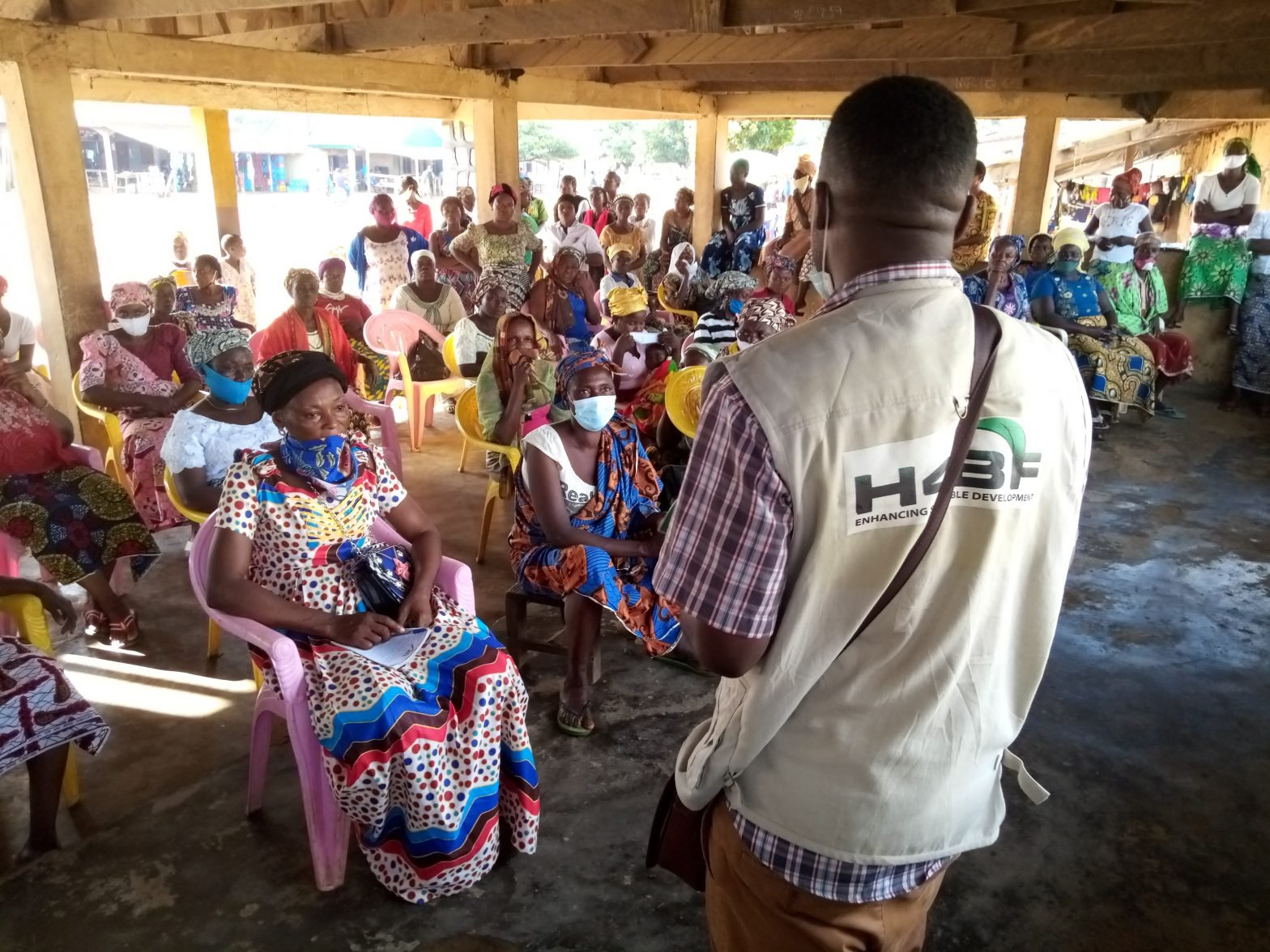H4BF launch pilot program to transform harmful gender norms
Working with women alone is not enough to bring about their economic advancement. Recognizing this, H4BF to involve men as allies in a new women’s economic development project in MEZAM Division, North West Region, Cameroon
Journeys of Transformation-MEZAM Division targets the spouses or partners of women participating in community-based savings groups supported by H4BF’s Women Empowered (WE) initiative. Men are invited to attend a series of facilitated group discussions that aim to challenge harmful gender attitudes and behaviors and provide opportunities to redefine what it means to be a supportive partner. Some sessions will be conducted with couples to promote non-violent, open communication and shared decision-making.
“Harmful gender norms and attitudes held by men create barriers restricting women’s access to financial services and limiting their opportunities for economic advancement,” said Bisona Solange, directress of WE Programs. “H4BF is proud to partner with Promundo in this effort to engage savings group members and their husbands and partners in support of women’s economic activities.”
The Journeys of Transformation (JoT) gender-transformative approach was developed by Promundo in collaboration with CARE International and implemented originally in Rwanda. In 2020, H4BF worked to adapt JoT to the context of North West and South West of Cameroon and the WE initiative. The adapted curriculum consists of 8 group education sessions—some delivered to couples, others delivered to men and women separately—led by trained community facilitators over the course of 8 months (August – Novembe 2021). Topics and activities include examining and practicing new skills around couples’ communication, household decision-making, budgeting, sexual and reproductive health and rights, and violence prevention and response.
“We’ve seen that when men become engaged as caring and equitable partners in the lives of their family, couple relationships improve, and children have a higher chance to develop healthily in a warm home environment that is free of violence,” said Jibbo Magaji, Director of Programs at Donga Mantung. “We hope this program can encourage men to recognize the valuable work women do for their families, support their active participation in economic activities and as leaders of their communities, and that they can take joint responsibility with their partners for unpaid care work and paid work outside the home that will enhance the whole family’s health and well-being.”
Under the JoT intervention, H4BF will target a total of 8 WE groups, reaching approximately 88 couples. The program builds on nearly a decade of H4BF’s women and social economic empowerment work in Mezam. Since 2018, H4BF has formed more than 47 WE groups, reaching more than 705 Mezam women. Together, these groups have saved more than $53,885,265 and made nearly $21,855 available as credit which their members have invested, contributing to the health, education, and productivity of Mezam families. H4BF has also partnered with local organizations and entities including local governments to transfer the WE methodology and further expand women’s empowerment work.
“We [have] never been in a program like this one that cares about us and is helping us to be better men,” said Razark, a new JoT participant in Nkwen, Bamenda. “As a group, we are supporting each other, so we can all become better partners, less machistas.”
For more information about PCI’s efforts to advance gender equality and women’s empowerment around the world, visit https://h4bf-foundation.org/advancing-the-rights-of-women-and-girls/
